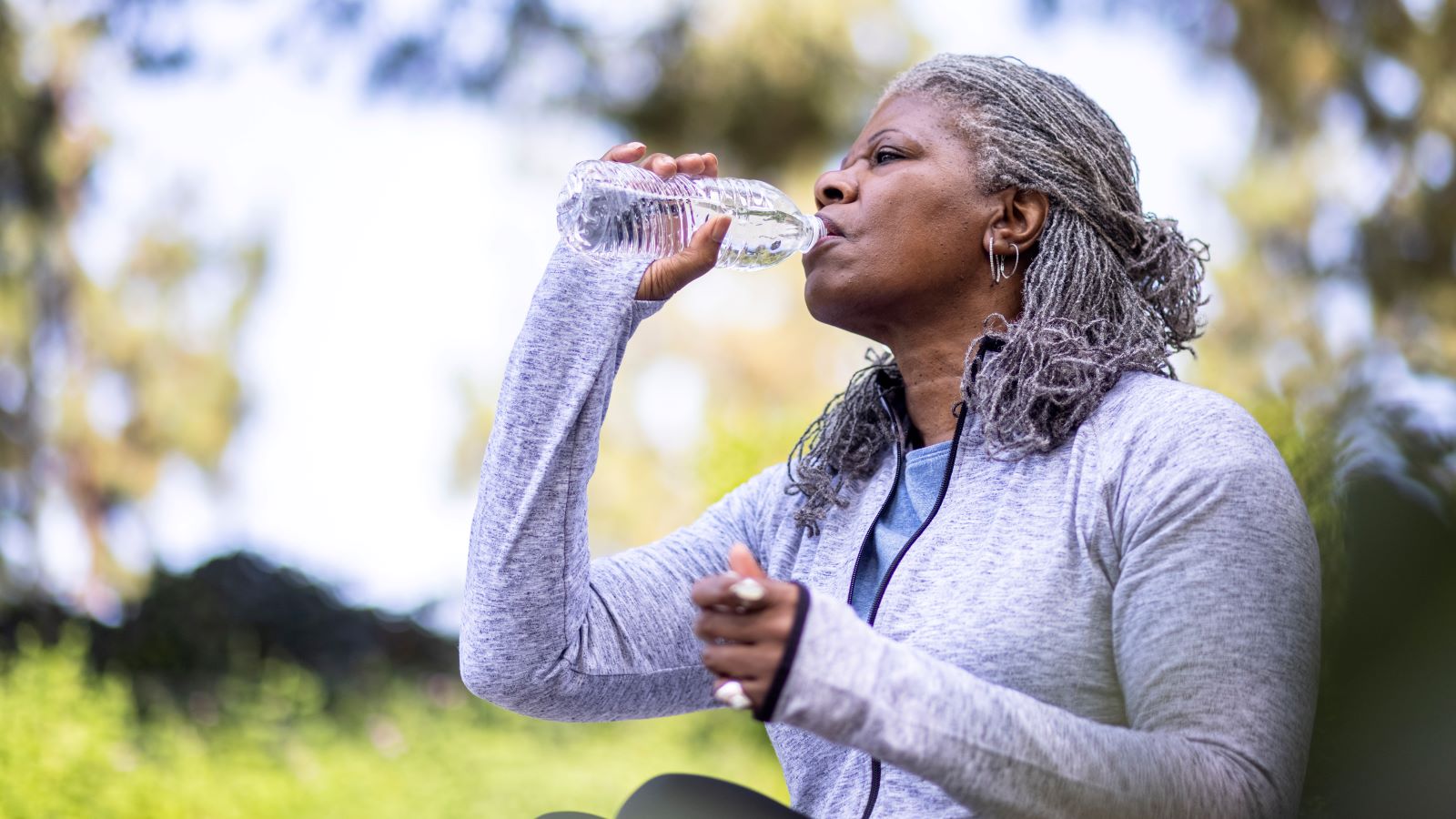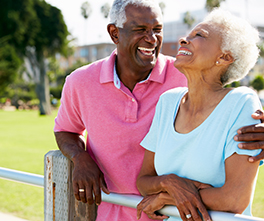Just like your hair color and activity levels, the amount of water you need to drink changes as you age. And because of that, older adults are more at risk for dehydration.
“With weather being hotter than before, coupled with people living longer, dehydration has become an even more important issue for older people,” says Taimur Habib, MD, who specializes in primary care and geriatrics for Hartford HealthCare Medical Group.
Why are seniors more at risk for dehydration?
The younger you are, the more water your body needs, but you still need an adequate amount of water as you age and you’re much less likely to drink enough.
The reason? First, your appetite and thirst tends to diminish as you age, says Dr. Habib. And certain medications can increase dehydration and require adjustments to your water intake.
Symptoms that raise your risk of dehydration
There are also medical conditions and symptoms that put people of any age at risk for dehydration – especially the elderly. These include:
- Diarrhea and vomiting
- Fever
- Excessive sweating
- Frequent urination
“When we are older, the signals to our brains which activate the thirst center to make us aware that we are dehydrated, diminish. Therefore, we don’t feel thirsty and may not drink the amount of fluids our bodies require,” Dr. Habib says.
> 5 Nutrients to Keep You Aging Gracefully
How do I know if I’m dehydrated?
You really must pay attention to your body and your mood to understand when you’re getting dehydrated, Dr. Habib continues. Warning signs can include:
- Weakness
- Confusion
- Fatigue
- Headaches
- Dry mouth
- Dizziness or lightheadedness
- Decrease in the amount of urination or dark urine
If dehydration is severe, it can also lead to low blood pressure, which can be life-threatening, he says. If you have extreme lightheadedness and feel like you might pass out, you’re having confusion, or are going to the bathroom less, he suggests seeking help right away.
5 tips for staying hydrated
Trying to get the right amount of water intake can be complicated, but Dr. Habib suggests these five tips:
- Track your water intake on a smartphone or by writing it down.
- Increase your fluid intake on hot days and after exercising.
- Limit your alcohol and caffeine consumption as they both can dehydrate you.
- Aim to drink at least one third of your body weight in fluid ounces each day (for example, if you weigh 150 lbs., try to drink a minimum of 50 oz. of water)
- Discuss other options with your primary care provider.



